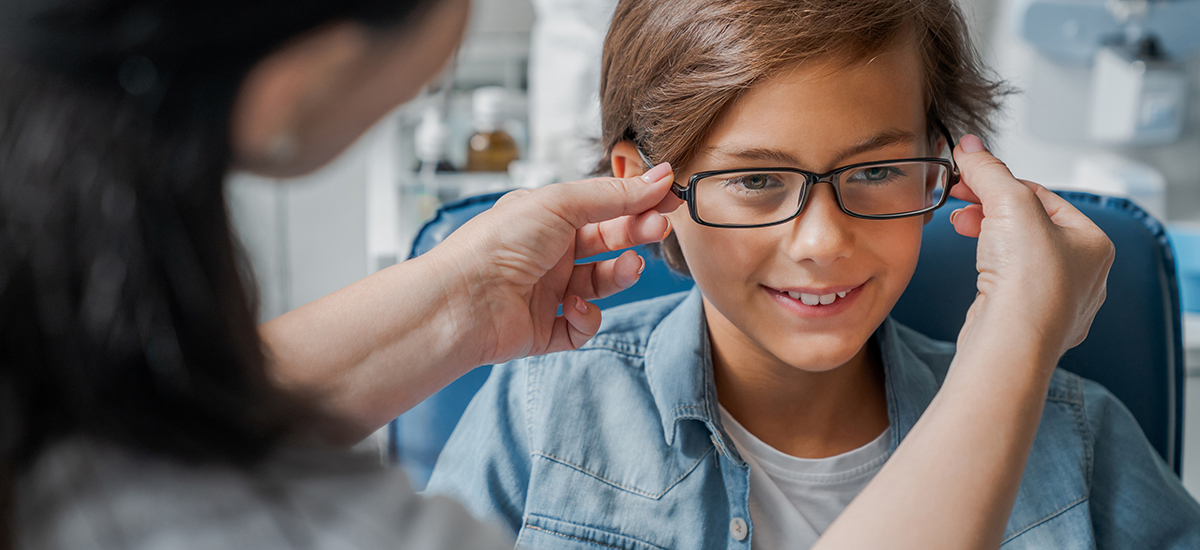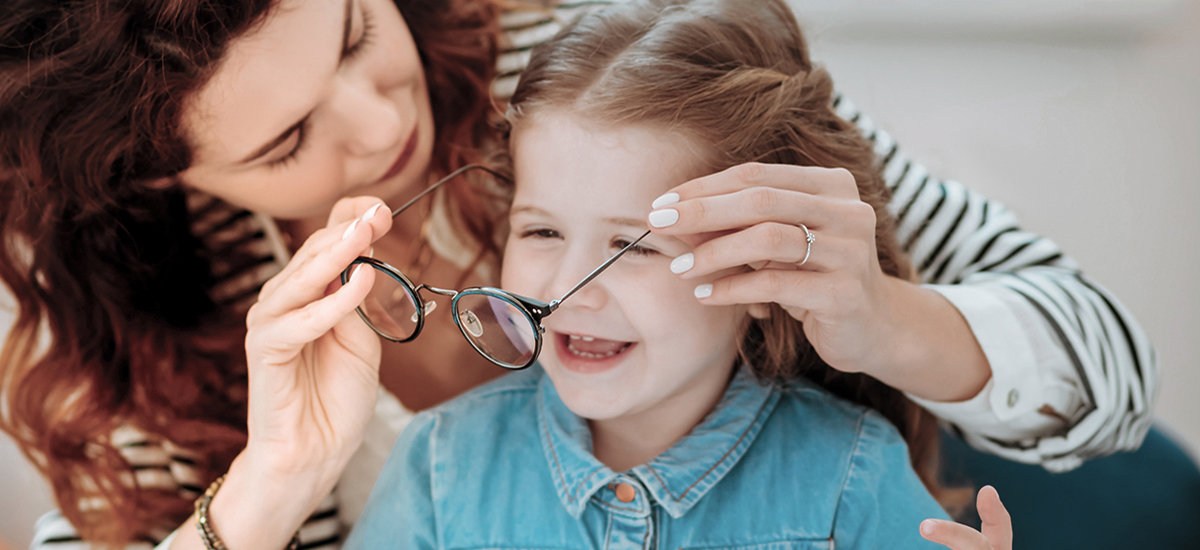Does Wearing Glasses Improve Eyesight?

The benefits of wearing glasses are endless. You can correct your vision and protect your eyes from ultraviolet (UV) light with a UV-blocking coating. Most glasses even last between one to three years with the right care, meaning you won’t need replacement frames too often.
But does wearing glasses improve eyesight? Let’s find out.
Does wearing glasses improve eyesight?
Yes, wearing glasses does improve eyesight--but only while you’re wearing them. To improve your vision without glasses, you’d need to fix the cause of your vision issues, which could mean altering your physical eye.
If you’re farsighted, for instance, your cornea may have a limited curving pattern, which keeps your eyes from refracting light at the correct level. Unless you grow out of your refractive error, the way to fix it would be to adjust the curve.
Glasses can help your vision by magnifying your field of view to make it easier to see things close up, but they won’t get rid of the small curve size. They’ll work with it to provide you with the best visual acuity, at least while you’re wearing corrective eyewear.
In other words, your lenses will correct your vision based on your prescription. However, when you remove your glasses, your vision may revert to normal.
Keep in mind that your glasses can correct your vision to 20/20 in some cases (or better), but it depends on your eyes. For instance, if you have 20/70 to 20/160 vision while wearing glasses, you might have low vision, which may require extra steps or special lenses to improve your eyesight.
Also, your eyesight can deteriorate as you get older due to presbyopia. Regular comprehensive eye exams can ensure you get the help you need for your eyes before your symptoms become too severe.
Does not wearing glasses make your eyes worse?
Going without glasses will not harm your eyes, but it can bring back your vision loss symptoms. Farsightedness symptoms may include strained or tired eyes after overusing your near vision. Agitation and headaches are also common.
You may have noticed that since you got glasses, many of these symptoms disappeared. However, by not wearing glasses, the effects of your refractive error or other eye issues may return.
For this reason, we suggest wearing your corrective eyewear per your eye doctor’s recommendations. They’ll detail the frequency of when to wear glasses after your eye exam. If you’re concerned that you can’t wear glasses all the time, don’t worry, as you might not have to.
Our team can also see if you’re eligible for contact lenses if you prefer less-conspicuous eyewear. For Eyes offers several options, including daily wear, extended wear, toric, and more, to give you the best vision correction with the most comfortable feel.
Summary: Does wearing glasses make your eyes better?
If you wear corrective lenses, you might wonder whether wearing glasses does improve your eyesight after all. The answer? Yes, it does. However, there’s no evidence that prescription lenses can affect your physical eye or the cause of your vision loss symptoms.
While wearing glasses, you can expect better vision since your glasses will correct your refractive error or other eye issues. If you choose not to wear your glasses, some vision loss symptoms can occur, so we recommend wearing your eyewear as advised by your optometrist.
The bottom line? If you want to improve your vision, glasses are an excellent choice. However, they’re temporary, meaning that they won’t fix your eyes--only help your eyesight while you’re wearing them.
Do you have any other questions about wearing glasses? Our team would love to answer them for you.
Shop at For Eyes for your next pair of glasses
Show off your unique style and browse our wide variety of frames from your favorite brands for men, women and kids. Stop by your local For Eyes or order online at your convenience.












